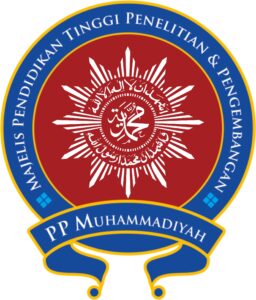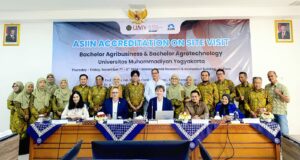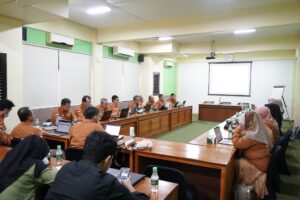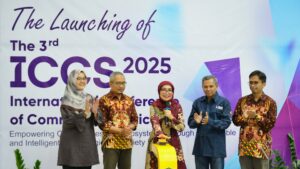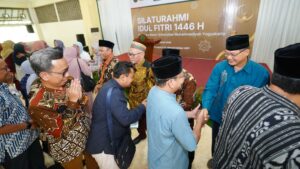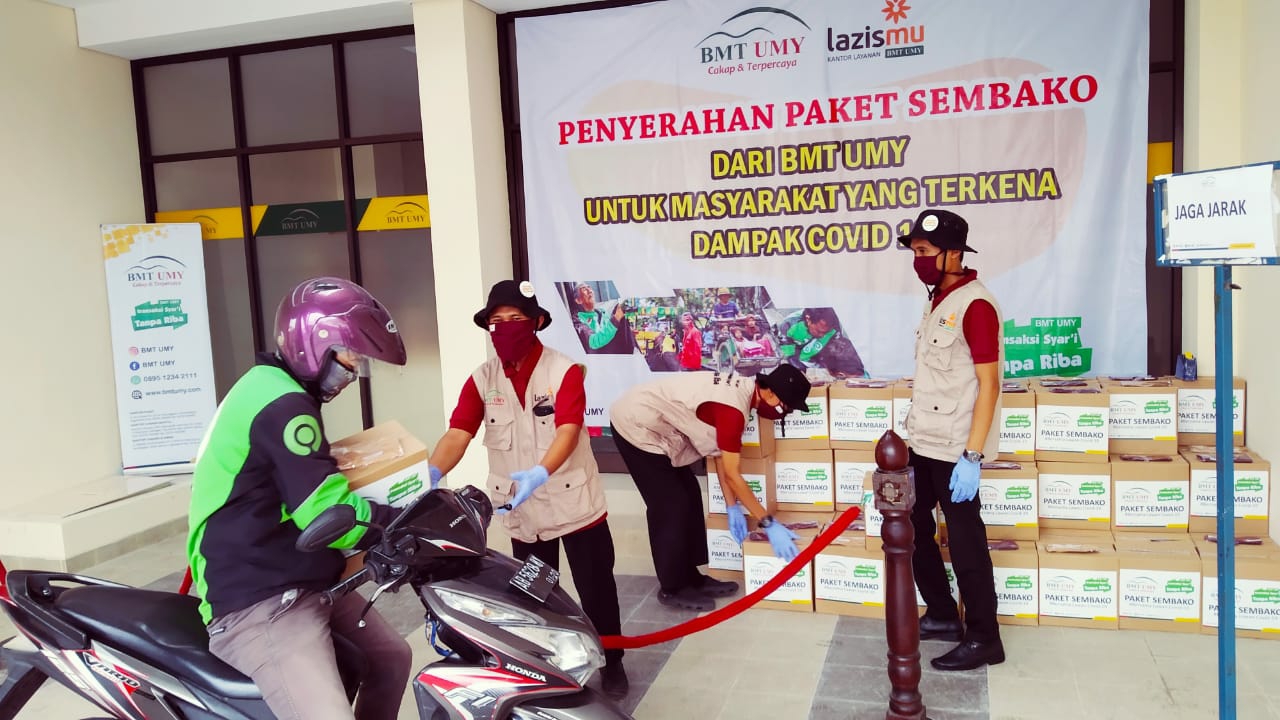 The COVID-19 pandemic and its spread in Indonesia had wide-ranging impacts, one of which was in the economic field especially for people who have a daily income. With the policy to carry out physical distancing being implemented, their income has significantly decreased. For this reason, as a form of concern for the affected communities, Baitul Maal wa Tamwil of Universitas Muhammadiyah Yogyakarta (BMT UMY) through the Lazismu BMT UMY Service Office organized for food to be distributed to people affected by the COVID-19 pandemic.
The COVID-19 pandemic and its spread in Indonesia had wide-ranging impacts, one of which was in the economic field especially for people who have a daily income. With the policy to carry out physical distancing being implemented, their income has significantly decreased. For this reason, as a form of concern for the affected communities, Baitul Maal wa Tamwil of Universitas Muhammadiyah Yogyakarta (BMT UMY) through the Lazismu BMT UMY Service Office organized for food to be distributed to people affected by the COVID-19 pandemic.
This activity was carried out in several stages starting from Tuesday (4/14) to Thursday (4/16) at BMT UMY Central Office at Jl. Mrs. Ruswo No. 41-43, Yudhonegaran, Gondomanan, Yogyakarta. In addition to the affected communities who live around the BMT UMY Head Office, the basic food packages are also given to daily workers such as offline and online motorcycle taxi drivers, pedicab drivers, coachmen, and the disabled.
According to Misbahul Anwar, S.E, M.Sc, the Chairperson of BMT UMY when contacted on Thursday (04/16), this grocery distribution activity was done out of concern from BMT UMY to the people affected by COVID-19, especially those affected in terms of food security. “This activity is not only sourced from UMY maal (charity) funds, but also from donors who have donated either in cash, bank transfer, or through the BMT application,” he said.
The food packages provided contain rice, granulated sugar, cooking oil, instant noodles, tea, sardines, masks, and cash. In order to comply with the government’s recommendation regarding physical distancing, the food distribution system is divided into several stages, the first being by visiting people from house to house and then directly visiting the daily workers on the street. For online motorcycle taxi drivers, the recipients of basic food packages are those who have registered in accordance with the criteria given by BMT UMY.
Misbahul also stated that this social activity will also continue during the month of Ramadan with the distribution of takjil (snacks) which will be purchased from the community and distributed back to the people in need. “This activity can at least provide enthusiasm for the community to deal with this outbreak optimistically and with mutual cooperation to show sympathy for others,” he said. (ays)
